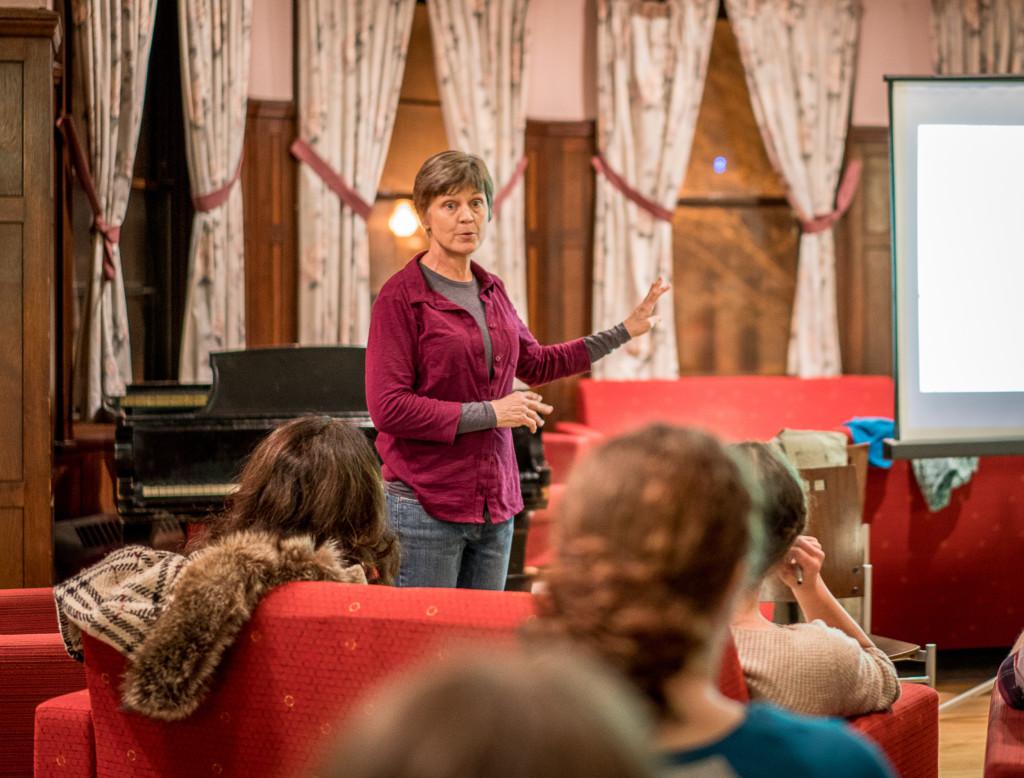Eva Lilienfeld, News Editor
lilienfe17@grinnell.edu
Farmer, writer and performer Janet Schlapkohl came to the college on Thursday, Feb. 18, to present an abridged rendition of her play, “Chore Boots,” about the struggle to maintain a family farm in Iowa during the agricultural crisis of the 1980s.

In the 1980s, as a result of international politics, the United States imposed a tariff on agricultural products purchased by Russia and grown in the Midwest. These provisions forced the farmers to give up their properties to factory farms, putting them into extreme debt.
“Now there were some farmers who overinvested, but we were living hand-to-mouth and didn’t buy anything and we still couldn’t make the prices work,” Schlapkohl said.
“Chore Boots” follows a girl growing up in Iowa in the 1960s, from her childhood into her role as the owner of the family farm. Based on Schlapkohl’s personal experience of inheriting her family farm only to eventually sell it, this one-woman show documents themes including the dedication to community development and the value of financial planning.
“I will keep myself apart from those in heels who are not what they seem and ally my loyalties to those in chore boots who provide me with silent understanding,” Schlapkohl’s character says in the first scene.
Throughout the talk that preceded the production and the question and answer session that followed, Schlapkohl stressed the need for family farms to stay as aware of their cash as they are of their crops.
“Almost six percent of farms have had a negative income for the past six years,” Schlapkohl said. “Imagine you have a job that you do every day and you have a negative income from that.”
With the decline of family-owned factory farms, Schlapkohl has noticed entire communities in Iowa shrinking. As some people leave, there is less of a reason for other farmers to stick around to raise a family.
“You want your kids to be in sports, and my father … is always updating me on the number of small schools; they’re closing buildings. There just aren’t the people out there anymore. You don’t even have people to round up to make a football team,” she said.
Schlapkohl maintains that there is hope for family farms, an integral part of Iowa’s history and culture, to rise again. Even with high debt and financial problems, she says that the community surrounding family farms could help rural Iowan communities return to their former glory.
“There is hope that there can be even a return to what was a working family farm,” Schlapkohl said.





























































